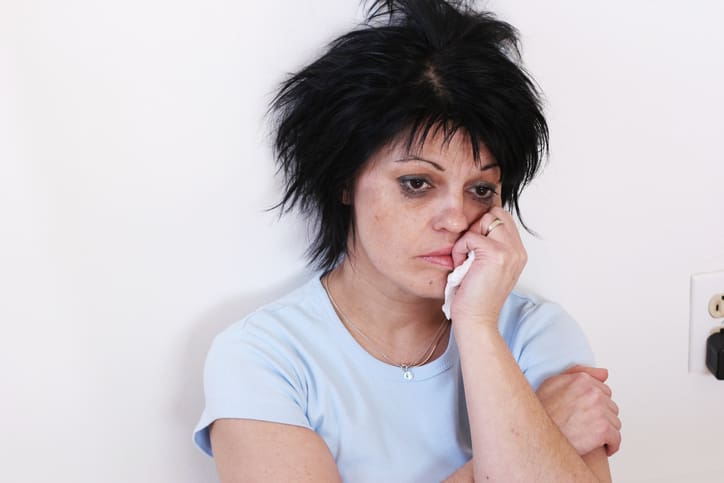Treating Heroin Addiction Near Atlanta
Heroin is an insideous substance that destroys lives. Those who regularly use this highly addictive drug often develop a tolerance and need more or more frequent doses to get the desired effects — sometimes disregarding all other aspects of their lives.

Heroin is a highly addictive opioid drug made from morphine that can be injected, sniffed, snorted, or smoked. It has both long-term and short-term effects on the person using it and can quickly lead to dependence; someone who is dependent on the drug will experience intense cravings and withdrawal symptoms when they try to stop taking it. It is important to recognize the signs that your loved one has developed a heroin addiction so you can help them get the treatment they need.
Risk Factors & Common Signs of a Heroin Addiction
According to the Mayo Clinic, anyone who uses opioids can become addicted to heroin, but certain factors increase a person’s risk of opioid misuse or addiction, such as:
- A family or personal history of addiction
- Severe depression or anxiety
- Unemployment
- Being around others who use heroin or in an environment where heroin is being used
- A history of taking risks
- Past criminal activity or legal issues
- Prior alcohol addiction or drug abuse
- Heavy tobacco use
Signs Heroin Use Has Progressed to Addiction
If you think someone close to you is using heroin, the following ten signs may be indicators that their use has turned into an addiction:
- Isolating from friends and family. An addiction to heroin often makes the person want to withdraw from those closest to them. Isolating from friends and family becomes obvious as the addiction worsens. You may notice that the person wants to spend more time alone and is no longer willing to participate in their usual activities.
- Visible needle marks. Those who use heroin often inject it using needles. Visible needle marks on various parts of the body such as the arms, legs, or neck are an indication that heroin is being used. The needle marks can look infected or inflamed, and infections can occur deep below the skin. The person may wear clothing with long sleeves to cover up needle marks and scars.
- The need for more. As a person repeats their use of heroin, they develop a tolerance to the drug and need more and more of it to feel the same effect. If the person does not get the dose they need, they may experience symptoms of withdrawal.
- Withdrawal. One of the most common signs of heroin addiction is symptoms of withdrawal. Symptoms may include vomiting, nausea, diarrhea, anger, and anxiety.
- Overdose. Many people who use heroin develop a tolerance to the drug and think they can handle higher doses. This can lead to an overdose, which can be fatal.
- Deep sleep. Another sign of a heroin addiction is a change in sleep patterns. The person may fall into a deep, heavy sleep and be difficult to wake up.
- Financial struggles. Heroin addiction comes with a cost, and it can cause a person to struggle financially. The person may spend all their money on heroin and ask friends or family for financial help.
- Lack of interest. A person addicted to heroin may no longer be interested in the things around them; they may be easily distracted or seem preoccupied. They may be so focused on using or finding the drug that nothing else around them matters.
- Change in appearance. Those who use heroin experience a change in their appearance. Over time, you may notice weight loss, poor hygiene, and excessive sweating.
The Effects of Heroin
Heroin creates both short-term and long-term side effects. When the person starts using the drug, side effects may not be as noticeable or severe as they are once the person becomes addicted.
Some short-term effects of heroin use are:
- Dry mouth
- Flushed skin
- Foggy mental function
- Feeling of heaviness in the arms and legs
- Itching
- Nausea
- Vomiting
Some long-term effects of heroin use are:
- Insomnia
- Depression
- Problems with the lungs
- Kidney and liver disease
- Infection of the heart valves and lining
- Erectile dysfunction
- Pain in the stomach
- Becoming violently ill
Help Is Available for Your Loved One
Your loved one may not be open to stopping heroin or getting the help they need for their addiction. The thought of withdrawal may cause fear and be overwhelming. At Twin Lakes Recovery Center, a leading Atlanta-area treatment center, we offer medically-supervised detox services to help with the withdrawal process. We provide a safe environment in a home-like setting for your loved one and have staff available 24/7.
In addition to detox services, Twin Lakes offers residential treatment programs, addiction education, 12-step meetings, and group and individual therapy. We can create a plan to fit your needs and get your or your loved one the help for addiction. To find out more about our services, contact us online to speak confidentially to one of our addiction specialists.















